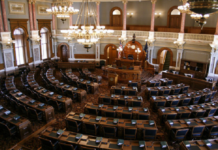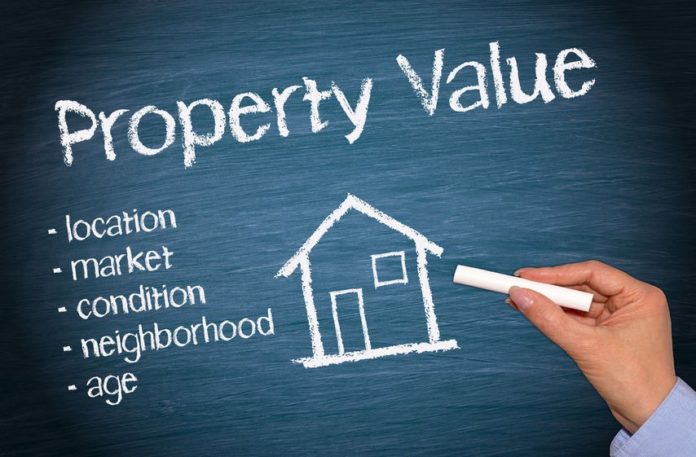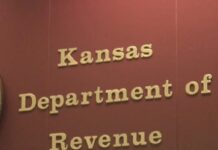The Kansas House on Thursday passed a bill requiring more public disclosure when local governments collect extra tax dollars from rising property values.
The House voted 120-3 to pass a bill patterned after laws in Utah and Tennessee requiring local governments to hold hearings and vote to accept extra revenues coming from increased property values even if the tax rate remained steady.
The bill puts limits on the longstanding practice of local governments collecting extra revenue without raising the property tax rate.
“This is a big concern for people in my town – increasing valuations of property result in extra money for the City Council to spend,” said Democratic state Rep. John Carmichael of Wichita.
“They don’t ever send it back. They don’t ever reduce the mill levy. They take it like candy and spend it,” Carmichael said.
The bill is headed to a conference committee where a couple of differences still need to be worked out with the Senate’s version of the bill. The Senate passed the bill 34-1.
The legislation eliminates the controversial property tax lid that the Legislature imposed in 2015 and started in 2017.
The lid generally required voters to approve city and county property tax increases higher than inflation from the previous year.
Supporters and opponents of the tax lid agreed that it was not the best way for holding down property taxes and keeping the public informed.
Supporters believed the lid was ineffective because it has too many exemptions that were used to recategorize spending so it wouldn’t be covered by the cap.
Opponents believed the lid imposed a burden on local governments at a time when state financial support was uncertain.
Other features of the bill include:
- Prohibiting an increase in the appraised value of property solely as a result of repairs or maintenance of existing structures.
- Authorizing county treasurers to accept partial payments and establish payment plans for all property taxes. Current law allows treasurers to accept partial payments for delinquent property taxes.
Democratic Gov. Laura Kelly vetoed the legislation last year because she believed it placed more administrative burdens on local governments when local officials should be focused on addressing the threats and challenges of COVID-19 in their communities.
Under the legislation, the property tax rate for local governments would be adjusted to bring in the same amount of revenue as it did the year before. A vote and hearing would be required to take in more money.
Local governments – not counting school districts – would be required to publish notice of their intent to take in extra revenues that either come from a tax increase or from a so-called windfall that could come with increased property values.
County clerks would be required to notify every taxpayer of the hearing with a notice that showed, among other things, the tax rate and amount of property tax paid to each local government.
The House delayed for a year until 2022 when county clerks would have to mail out tax notifications required by the new bill.
The House also added a provision that calls for the state to cover the cost of mailing out the notifications.
















